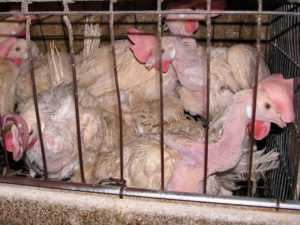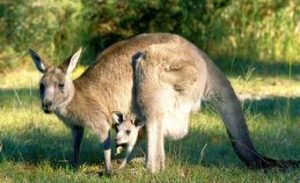Some opponents of the bill attempt to use LA Animal Services’ progress as a reason to not support AB 1634, The California Healthy Pets Act. They assert that if LA is able to reduce pet euthanasia without mandatory spay/neuter then any community could do the same if they were so inclined. Don’t be fooled by these misleading arguments. LA is not typical of most California communities, and despite our best spay/neuter efforts when it comes to the number of unwanted pets coming into our Animal Care Centers, it’s almost as if we are standing still.
Unlike any other community in California (or the United States for that matter) Los Angeles provides between 40,000 and 45,000 spay/neuter surgeries to LA pets annually. Despite our $1.2 million commitment to spay/neuter every year, we still saw a one percent increase in the number of dogs and cats we took in during Fiscal Year 06/07. While opponents of AB 1634 claim all the unwanted animals dying in shelters are feral cats, the actual number of cats, feral and otherwise, coming into our Care Centers actually decreased nearly 1% (20,898 from 21,067) while dog impounds increased nearly 2% (25,419 from 24,748).
While LA can boast one of the most impressive track records towards achieving No-Kill in the United States, we are not there yet, not as long as we consistently take in 46,000 lost and homeless dogs and cats every year. It is time we turn off the faucet that is flooding our state with so many unwanted animals.
LA Animal Services initiated AB 1634 in recognition of the fact that unless we work together as a state to stop the proliferation of unwanted dogs and cats in California then every community, including Los Angeles, will ultimately fail in its quest to achieve No-Kill. If we refuse to fix this broken pipe we will continue to find ourselves mopping up the results of irresponsible pet guardianship at a tremendous cost to taxpayers.
More than any other city in the state, LA has too much invested to fail now. $1.2 million a year for spay/neuter surgeries, $160 million in new shelters and clinics to handle the crushing numbers of unwanted dogs and cats, and $21 million a year in animal control costs associated with unwanted dogs and cats, up 36% over the past six years.
No other city has more aggressively fulfilled the mandates of the 1997 Hayden Bill to hold animals longer and provide better medical care. But the unintended consequences of the Hayden Bill has been over crowded shelters all across California and the state’s third largest reimbursable mandate, hovering at around $150 million and growing at about $30 million a year. AB 1634 will help stop the insanity of escalating budgets and escalating body counts across the state (visit http://www.cahealthypets.com/ for more information).
Please contact your Senator today and ask him/her to support AB 1634.
Defining No-Kill
When talking about “no-kill”, it is important to understand how this term is defined. At LA Animal Services “no-kill” means using the same criteria a compassionate veterinarian or loving guardian would use when deciding if euthanasia is appropriate. That is, euthanasia is only appropriate when an animal is terminally ill, terminally injured, or dangerously aggressive. When euthanasia is compassionately available for these animals alone we will have achieved “no-kill”.
LA Animal Services contends there is a loving home somewhere for all other categories of animals (the healthy, the treatable, and animals with behavioral issues that do not put people or other animals at serious risk of injury). Until all these animals are safely placed in loving homes Los Angeles has not achieved No-Kill. Until LA is not killing animals for reasons of space or limited medical resources we have not achieved No-Kill.
June 07 Statistics
Let’s look at the June 07 numbers first. They reveal a timely snapshot of where we are now, but the real story is the consistent life saving trend we can document over the past five years.
June 07 dog and cat adoptions are up 26% compared to June 06 (1,552 from 1,233). Dog adoptions are up 14% (839 from 733) and cat adoptions are up 43% (713 from 500). The increase in cat adoptions appears to be the result of the community rallying to our calls for help with this year’s influx of cats.
New Hope Placements for dogs and cats is down slightly, 5.5% (344 from 376). Our New Hope program is a partnership with over 150 rescue organizations in California who help us place healthy and treatable animals at risk of euthanasia. New Hope placements for dogs is down 14% (291 from 340) but up 8% (235 from 217) for cats.
Where Animal Services Adoption and New Hope program’s synergistic efficiency truly reveals itself is in the euthanasia numbers. Dog and cat euthanasia in June 07 is down 30% (1,847) compared to June 06 (2,647). Dog euthanasia is down 30% (523 from 752) and cat euthanasia is also down 30% (1,323 from 1,895).
LA Animal Services implemented an aggressive orphan neonate kitten foster program this year. Neonates are kittens too young to survive on their own and in need of intensive foster care in order to survive. Neonates are animals state law defines as “unadoptable”, but LA Animal Services’ reverence for life No-Kill philosophy requires us to do everything we can to save these, the most helpless of all creatures. In June 07 neonate kitten euthanasia decreased 59% (328 from 804). May 07 saw a 40% decrease in neonate mortality (192 from 319).
These remarkable life saving results were achieved by LA Animal Services employees and nearly 100 volunteer foster care givers who refused to let these animals die! I want to thank each and every one of you for your compassion and commitment to life! In addition to the extraordinary efforts of our foster care givers, I want to thank our wonderful employees and volunteers for taking the time to help the public understand that by keeping these animals at home with momma until they are weaned they can greatly improve these babies’ chances of survival and, of course, for distributing Spay/Neuter Vouchers to get momma spayed after she weans this last batch of babies. These efforts resulted in a 21% decrease in the number of neonates coming into our Centers in June 07 compared to June 06 (862 from 1,095).
Fiscal Year 06/07 Statistics
In Fiscal Year (FY) 06/07, LA Animal Services took in 25,419 (55%) dogs and 20,898 (45%) cats. 34% (15,808) of all dogs and cats were owner relinquished, unwanted. 66% (30,686) were rescued by LA Animal Care Officers who found them as lost, roaming the streets, uncared for and perhaps just as unwanted.
LA Animal Services returned nearly 16% (4,037) of all incoming animals to their very grateful guardians. LA Animal Services consistently maintains one of the highest “return to guardian” rates in the country.
32% (6,634) of all cats taken (20,898) in were orphaned neonates. Pit bull and pit bull mixes represent 25% (5,408) of all dogs taken in (25,493), 15% (1,463) of all dogs adopted, 4% (408) of all dogs placed through New Hope, and 41% (2,574) of all dogs euthanized. Pit bull and pit bull mixes represent the most popular dogs sought out for adoption. They also outnumber all other dog breeds euthanized.
In FY 06/07, LA Animal Services dog and cat adoptions are up 6.8% (15,098 from 14,125). Dog adoptions are up nearly 12% (from 8,772 to 9,813) and cat adoptions are down about 1% (5,285 from 5,353). New Hope placements are down 1.7% (5,918 from 6,023). However, the combination of adoptions and New Hope placements is 21,016 – making LA Animal Services the largest pet adoption agency in the nation again this year.
In FY 06/07, Los Angeles euthanized (or killed) 17,314 dogs and cats. This represents the fewest number of dogs and cats euthanized in LA in a one year period. This is an 11.25% decrease from the previous Fiscal Year in which 19,508 dogs and cats were euthanized. LA Animal Services has consistently reduced euthanasia over the past five years in the double digits. 15% in 02/03. 12% in 03/04. 16% in 04/05. 10% in 05/06. 11.25% in 06/07. This represents a 50% decrease over the past five years from 34,329 to 17,314.
A sincere thank you to all of you who are helping to make No-Kill an achievable goal in LA!
And don’t forget to call or fax your Senator today to ask his/her support of AB 1634, beginning with the Senate Local Government Committee, which hears the bill on Wednesday, July 11th. The Committee’s members include:
Senator Gloria Negrete McLeod (Chair) 916-651-4032
Senator Dave Cox (Vice Chair) 916-651-4001
Senator Tom Harman 916-651-4035
Senator Christine Kehoe 916-651-4039
Senator Michael Machado 916-651-4005


